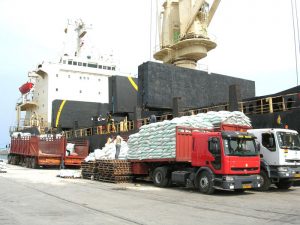The Chief Executive Officer of the Ghana Investment Promotion Center (GIPC), Yofi Grant, insists Ghana’s economy is better off than what exists in other countries.
Many Ghanaians have complained about the harsh economic conditions in the country.
Some have blamed the government for mismanaging the economy, leading to the hardship.
Former President, John Dramani Mahama, for instance said Ghana’s economy is “on its knees” following its poor handling by the governing New Patriotic Party (NPP).
While accusing the Akufo-Addo administration of what he terms as political deception, Mr. Mahama is also of the opinion that, the current manner the Akufo-Addo government is managing the economic situation of the country can be best described as a deliberate attempt to lead Ghana in a troubling direction
But in a Citi News interview, Mr. Grant said Ghana’s situation is not peculiar as most countries, if not all were affected adversely by COVID-19.
He opines that unlike most of these countries, Ghana’s economy continues to thrive steadily.
“COVID-19 hit us hard, but we are looking good compared to other countries. I hear people say bad policy has caused a degradation of the economy but show me which country that hasn’t been affected massively by COVID. Some countries have had to borrow trillions, we haven’t.”
“But more interesting indicators is that Ghana once again has been predicted to be one of the fastest growing economies and we are expected to grow between 4.9% and 5.5% by the end of this year. Which will be a leading growth parameter that we have to be happy about because the real impact of COVID-19 was to wipe our lives and livelihoods and we haven’t recovered. Shipping cost from China for instance is 10x the amount now. This affects the whole chain.”
He said the country may be able to raise about $2 billion from investments by the end of the year.
“Our target for the end of 2021 was $3 billion, but we are quite a bit shy of that now. There are some big projects in the pipeline which may take a while. And so we might not be able to hold them before the year ends. But we are looking at something close to $2 billion by the end of the year.”






